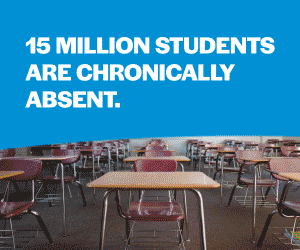
One of the most critical findings from the report is the potentially catastrophic impact that the loss of E-Rate funding would have on the vast majority of school districts should the Supreme Court decide Universal Service/E-Rate is unconstitutional. Such a decision would cut off access to essential digital learning tools and online resources.
AI, which relies on internet access supported by E-Rate, presents both opportunities to transform educational strategies for individualized instruction and learner empowerment as well as challenges — such as cyber-attacks, cyberbullying and misinformation.
On the operational side, the rise of the Internet of Things (IoT) continues to expand the responsibilities of edtech leaders. Managing the complexities of modernized infrastructure, safeguarding student data privacy and integrating technological innovations have given edtech leaders a uniquely comprehensive perspective on the K-12 digital ecosystem.
“This year’s survey reveals a defining moment for K-12 education,” said Keith Krueger, CEO, CoSN. “Digital infrastructure is now the backbone of teaching, learning and school operations — and edtech leaders are the architects holding it all together. District leaders and policymakers must act now to sustain the infrastructure and talent that keep learning accessible for all, secure and future ready.”
The 2025 survey and report were conducted in partnership with AASA, The School Superintendents Association, CDW Education, Lightspeed Systems, MCH Strategic Data and Sogolytics.
This year’s top findings include:
- Digital Connectivity: If the Supreme Court rules the E-Rate program’s structure is unconstitutional, the impact will be major or catastrophic for 74% of districts, affecting students in all settings — rural, town, suburban and urban. Nearly half of respondents in cities (48%) describe the impact to be catastrophic.
- AI: An overwhelming 94% of edtech leaders see AI as having a positive impact on education, with productivity cited as the top benefit. Generative AI (Gen AI) was ranked as the top technology priority, with 80% of respondents working in districts with Gen AI initiatives.
- Cybersecurity: Most school districts do not have dedicated funding to keep their networks and data secure, with 61% relying on general funds to pay for cybersecurity efforts.
- Interoperability: The number one barrier to improving interoperability is not the lack of agreed-upon standards — which survey respondents ranked the least problematic — but a lack of understanding by leaders.
- Edtech Leaders: While the overall demographics of edtech leadership remain largely consistent, there was a notable shift in gender representation, with female respondents dropping to 29%, down from 37% in 2024.
To download the full report, visit: https://www.cosn.org/tools-and-resources/resource/2025-state-of-edtech-district-leadership/.
To learn more, visit: https://www.cosn.org/edtech-topics/state-of-edtech-leadership/.




























